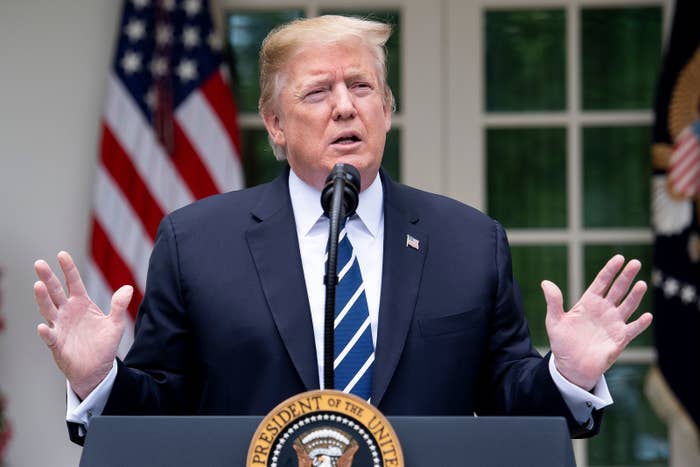
WASHINGTON — A federal judge in Manhattan Wednesday rejected President Donald Trump's bid to block House subpoenas to Deutsche Bank and Capital One for his financial records, becoming the second judge this week to hand Trump a loss in his sprawling fight with congressional Democrats.
US District Judge Edgardo Ramos announced his decision from the bench after hearing arguments Wednesday afternoon and issued a written order soon after. His decision comes two days after a federal judge in Washington, DC, denied Trump's motion to block a House Oversight Committee subpoena to his longtime accounting firm, Mazars USA LLP.
Trump has already appealed the ruling in the DC case and is expected to appeal the New York decision as well. Ramos denied a request by Trump's attorney to delay the effect of his ruling pending the appeal; Trump can ask the US Court of Appeals for the 2nd Circuit for a stay. The judge in the Washington case, US District Judge Amit Mehta, also denied Trump's request for a stay.
As of now, until a court agrees to stay the lower court judges' decisions, the banks and accounting firm are facing imminent deadlines to produce Trump's documents to the House committees. Courts prefer to maintain the status quo while cases are pending, but they don't always grant stays during appeals. Trump hasn't asked the appeals courts yet to stop Democrats from enforcing their subpoenas, and it's unclear if those judges would agree with Mehta and Ramos. Mehta found that Trump wasn't entitled to a stay because he wasn't likely to win, and there was a strong public interest in Congress being able to function. If Trump can't get stays from the appeals courts, he could petition the US Supreme Court to step in.
Ramos's one-page order did not articulate his reasons. But according to reporting from inside the courtroom by Courthouse News, Ramos, like Mehta, found that the subpoenas issued by the House Financial Services Committee and the House Intelligence Committee served a "legitimate legislative purpose."
Trump's lawyers had argued that Congress had abused its constitutional authority by going after his personal financial records without specifying what legislation they wanted to pursue based on whatever information they received from the banks. They also argued that Democrats were unlawfully taking on the role of law enforcement, and that, generally, Congress had limited power to investigate a sitting president. His lawyers made a similar argument in the DC case as well.
Lawyers for the House countered that US Supreme Court precedent did not require committees to specify what legislation they wanted to adopt in pursuing investigations. Instead, they argued the standard was whether the information sought could serve a "legitimate legislative purpose."
Democrats argued that the subpoenas were part of investigations by the two committees that covered whether Trump, his business, and his family members — including those who are serving in the administration — were complying with financial regulations and laws, the extent of foreign influence in US politics, and more broadly about the state and strength of US financial laws.

